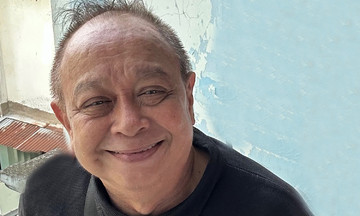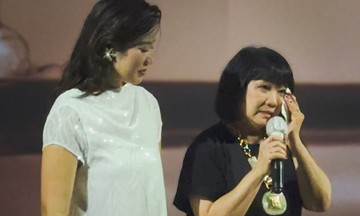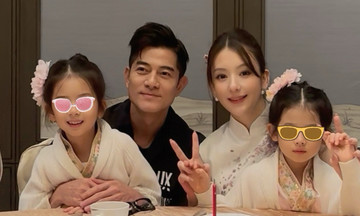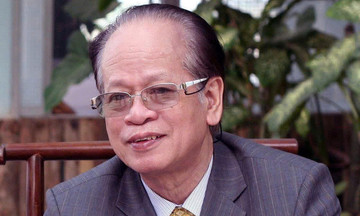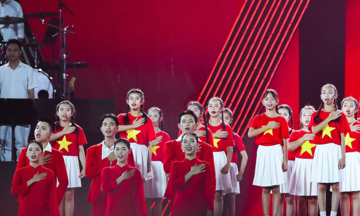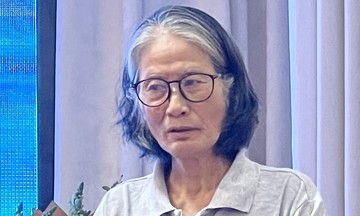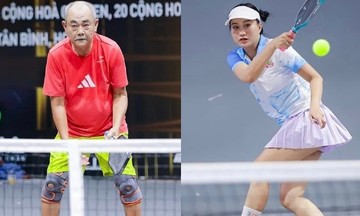At the September 15 press conference for his live concert, "Duong Thu - Bai hat thu ve" ("Duong Thu - Collected Songs"), the composer shared an anecdote from when Thanh Lam first started her career in Ho Chi Minh City. They clashed during the recording of his songs "Em di qua toi" ("You Walked Past Me") and "Hoi tho mua xuan" ("Breath of Spring").
Unhappy with Lam's approach, he left the studio and even considered asking her to leave. "I write music with a specific rhythm, but Lam was used to a rock style," he explained. Lam later adapted her style to better suit his music.
The diva's career is intertwined with Duong Thu's compositions. "Uncle Thu represents my youth," she shared. While she has successfully performed many of his songs, "Hoa mi hot trong mua" ("Nightingale Singing in the Rain") is the only one she admits to having been "defeated" by. She recounted that while working on her 2001 album, "May trang bay ve" ("White Clouds Returning"), composer Quoc Trung, after finishing the arrangement, called her in to record. Despite loving the song, she confessed she couldn't capture the "nightingale" essence, jokingly comparing her rendition to an "eagle."
Along with Thanh Lam, Duong Thu considers Hong Nhung and My Linh his "musical family." For this live concert, many inquired about featuring younger artists, but he chose to stick with familiar voices, confident in their ability to connect his music with the audience. He praised Thanh Lam's enduring energy, echoing the sentiment that in singing, "the older the ginger, the hotter it gets."
He stated, "Society determines a work's value, not the composer. Giving a song to a poor singer would be a disservice to the audience." After careful consideration and numerous suggestions from the organizers, Orange was one of the few young singers invited to perform, joining Thanh Lam for "Cho em mot ngay" ("Give Me One Day").
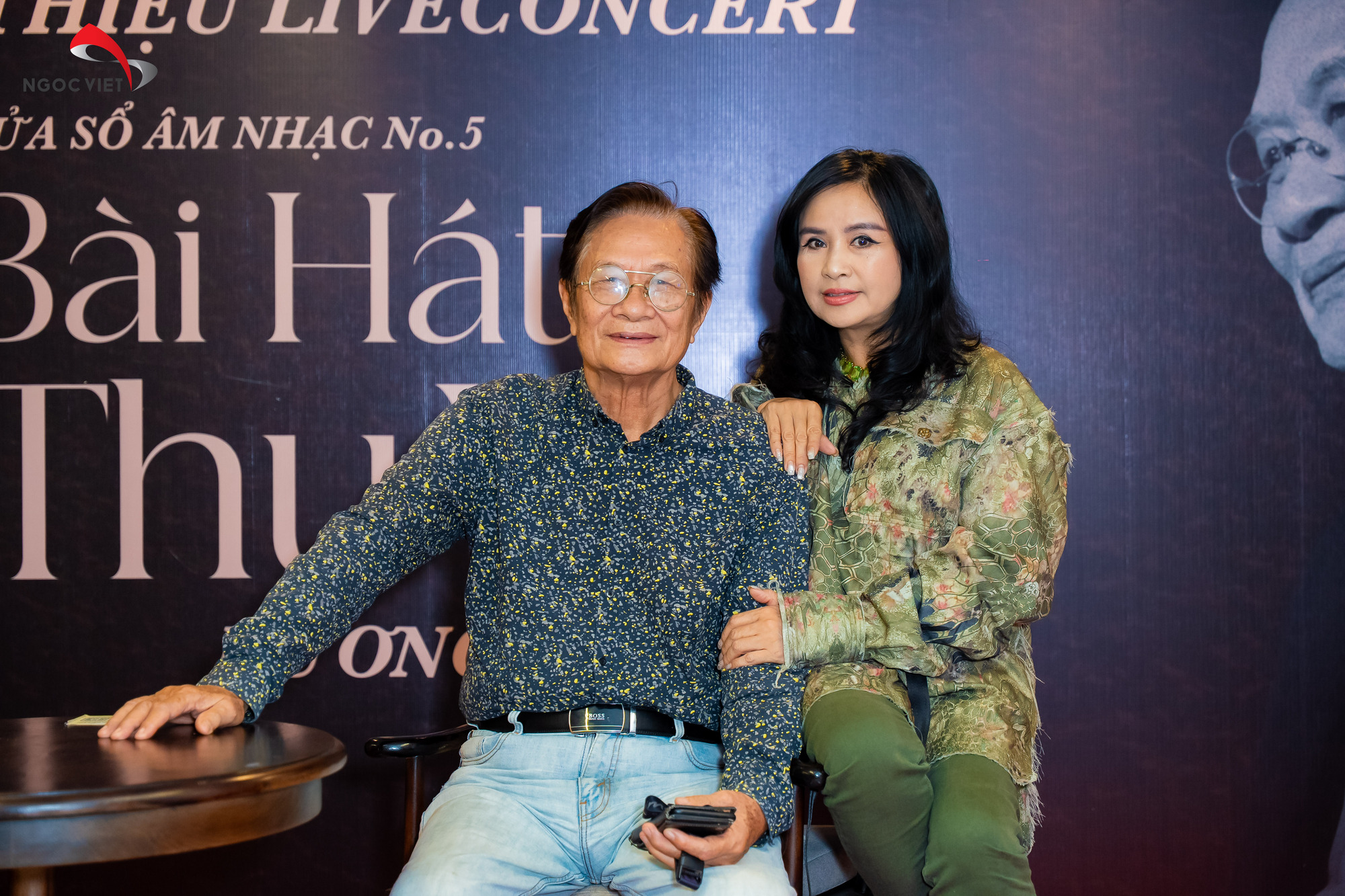 |
Thanh Lam and composer Duong Thu at the concert launch event. Photo: Provided by the organizers |
The composer spent a year developing "Duong Thu - Bai hat thu ve," exploring various production teams and new talent but ultimately returned to his familiar "ensemble." According to Duong Thu, while "Bai hat thu ve" is part of a four-season suite, it isn't confined to depicting spring, summer, autumn, or winter. It's a space for diverse emotions and musical tempos: "I chose autumn as the title, but the entire concert doesn't revolve around autumn. It's simply a starting point."
He likened this stage of his life to "settled alluvium," no longer drawn to the intensity of a stormy summer. At 82, he seeks tranquility and clear skies. Despite life's ups and downs, he cherishes the beautiful memories and hopes the audience will revisit joyful times, adding meaning to their lives.
Duong Thu's live concert also features singers Bang Kieu, Tan Minh, Khanh Linh, and Vu Thang Loi. He introduced Dao To Loan and Minh Duc as the newest "grandchildren" in his musical family. He serves as the concert's artistic director, with composer Hoai Sa as the main arranger, accompanied by the Vietnam National Opera and Ballet orchestra.
Duong Thu, also known by the pen names Tran Xuan Nam, Van Dinh, and Ai Nhac, has lived and worked in Ho Chi Minh City since 1977. His first songs were performed on stages there. In the 1990s, he gained wider recognition in Hanoi, largely due to capital city singers performing his music. He is renowned for compositions like "Lang nghe mua xuan ve" ("Listening to Spring's Return"), "Mong ve Ha Noi" ("Longing for Hanoi"), and "Mat troi diu em" ("Gentle Sun").
Phuong Linh




